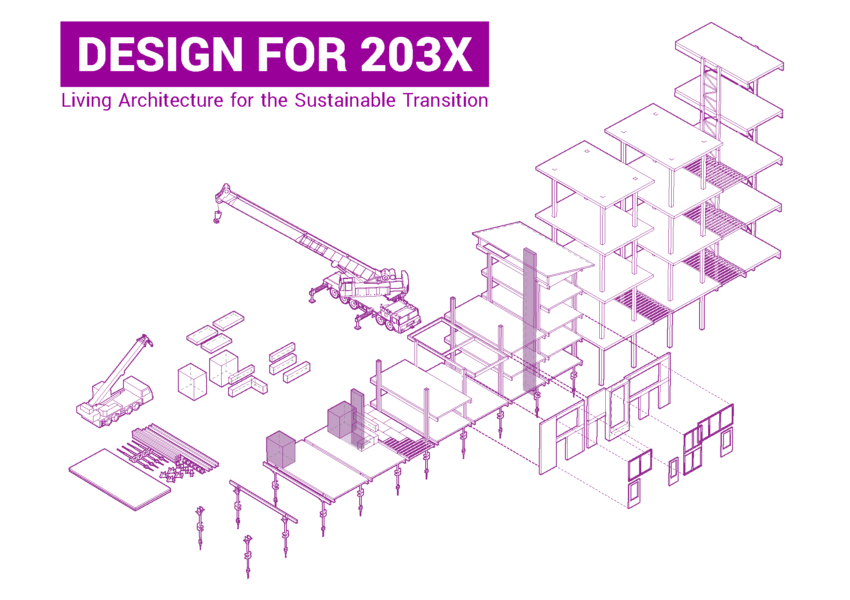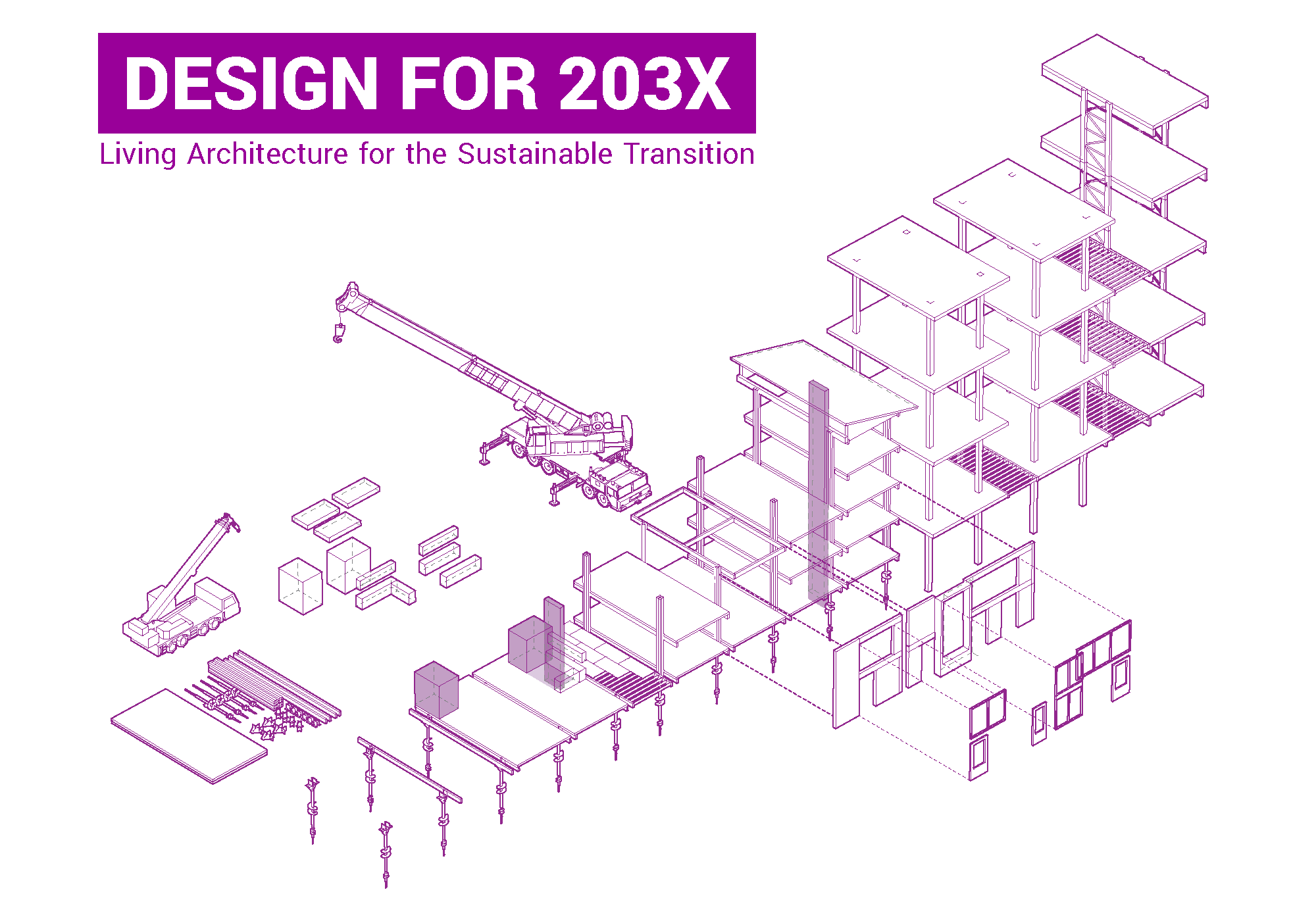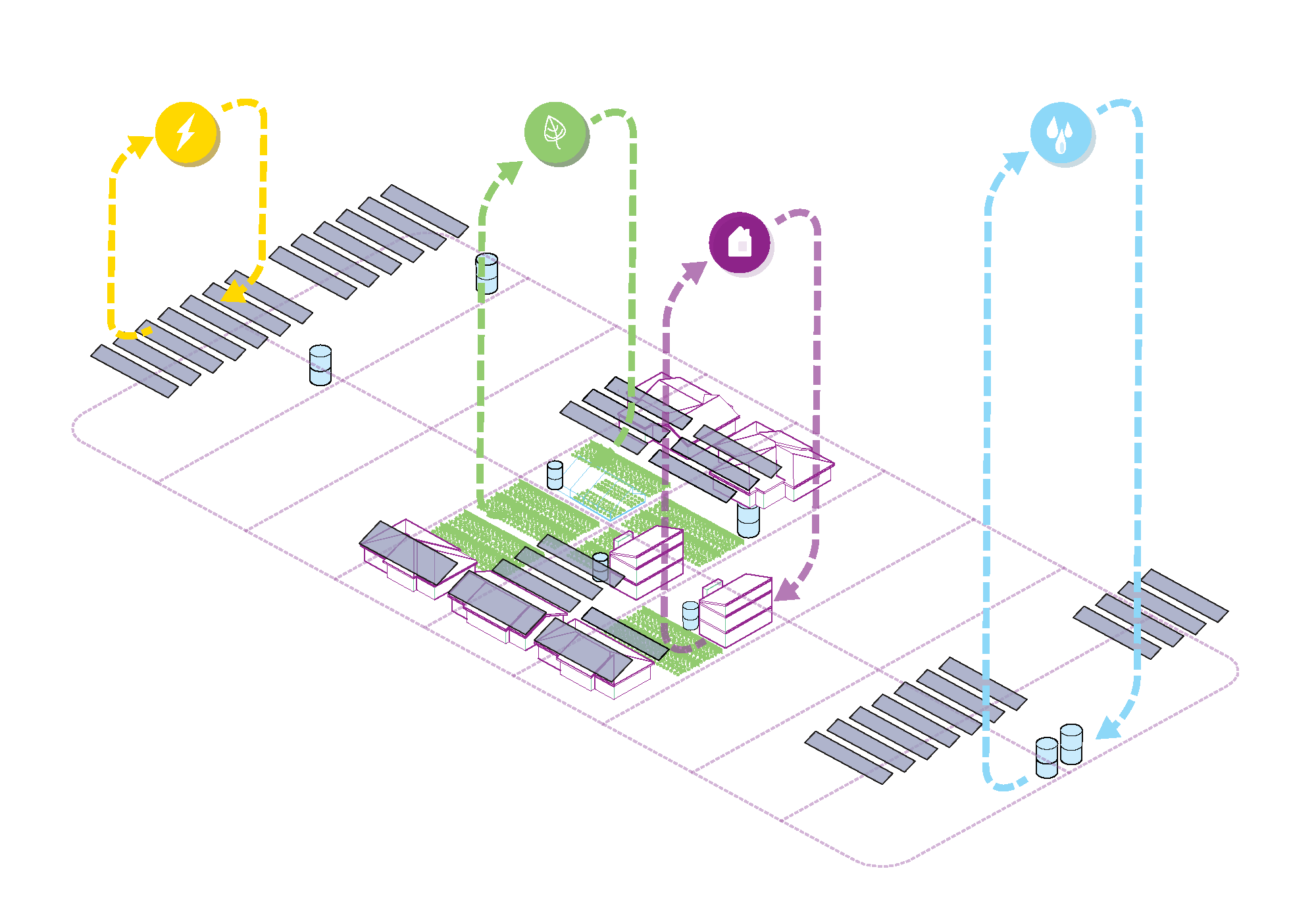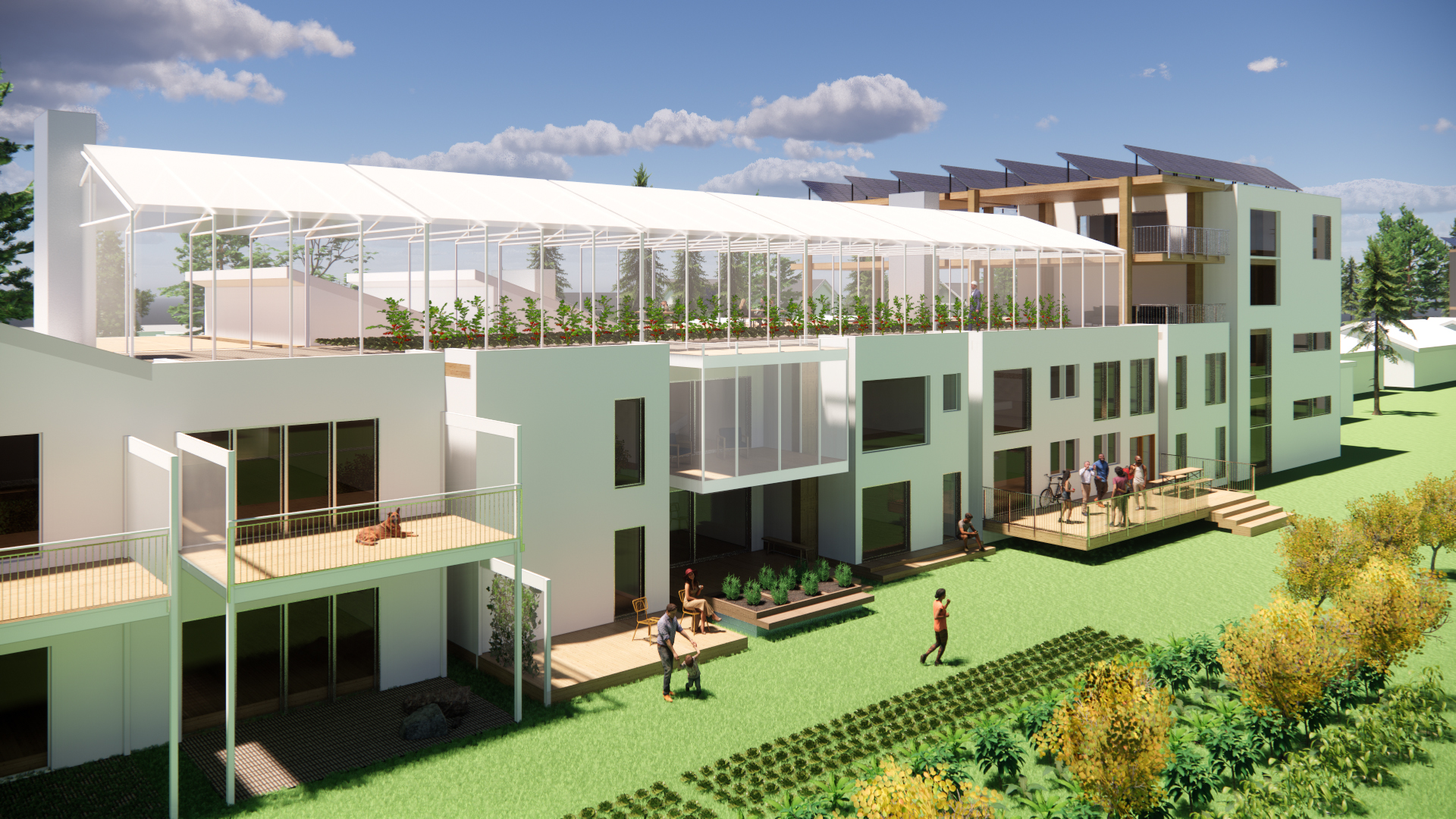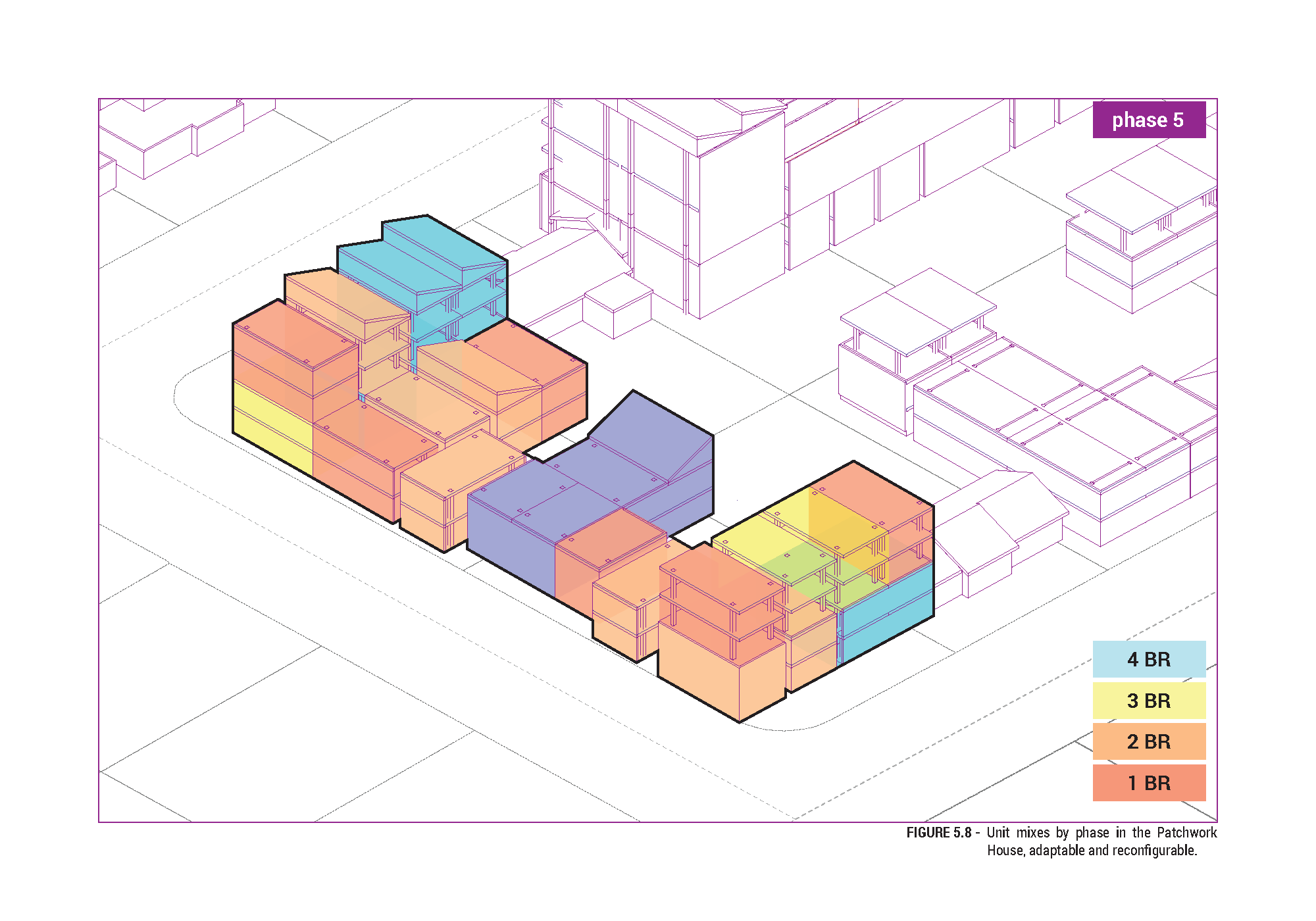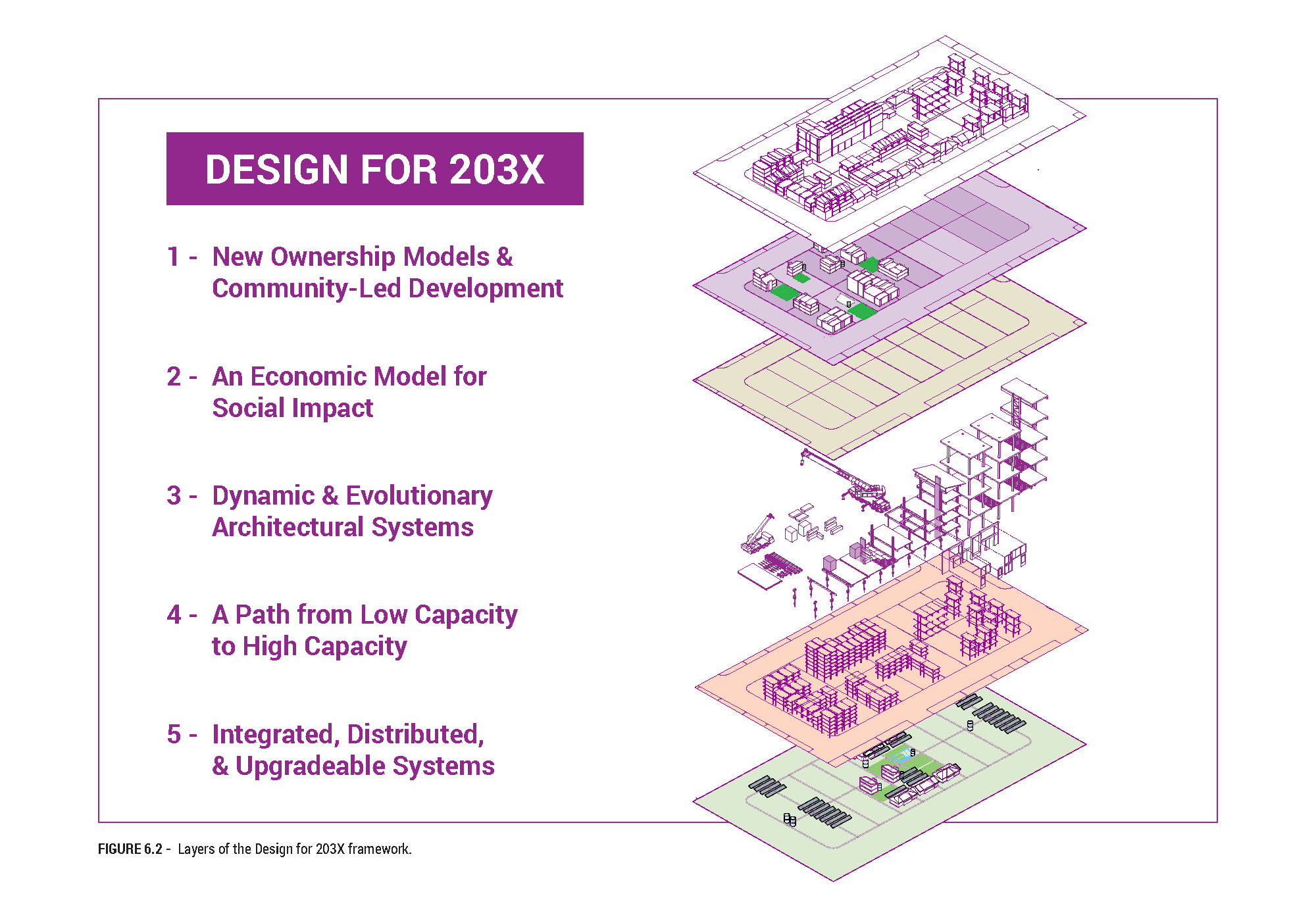This thesis presents a vision of how residential architecture must change to address the challenges of climate change and housing affordability while accommodating growth. The investigation spans the past, present, and future of the American single-family housing typology to understand and engage the dominant vernacular in the United States and Seattle. The project imagines what residential architecture would be if long-term sustainability and equity were the key drivers of design by exploring social, economic, and technological aspects including community land trusts, densification, carbon emissions, community development, and construction technology. The result is a framework called “Design for 203X” which proposes an incremental and flexible approach towards architecture, integrated with advances in other fields to increase human and environmental well-being for a more sustainable and equitable future.
Take a look at the full thesis project here: George Lee Thesis Project 2020
